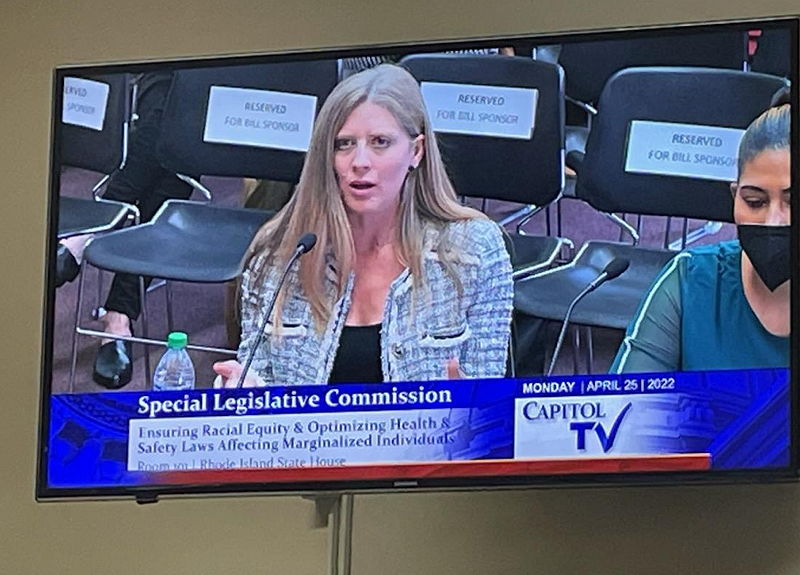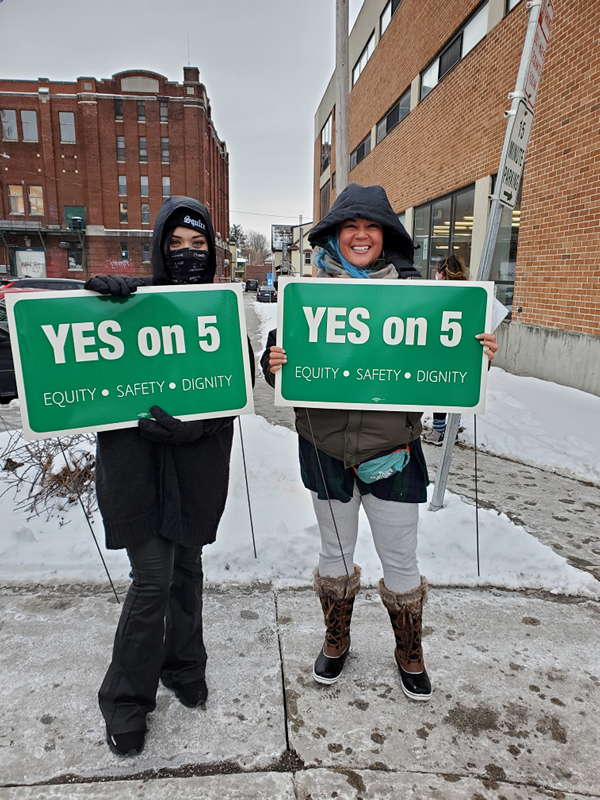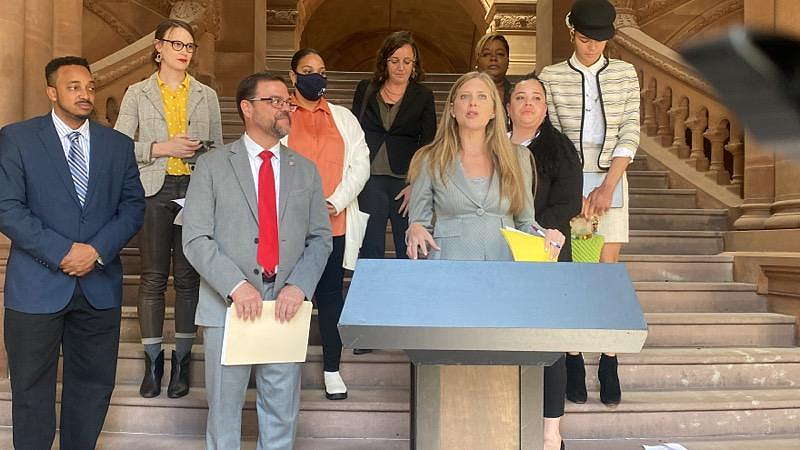April 25, 2022
DSW Legal Director Melissa Broudo presented on the differences and distinctions between human trafficking and consensual adult sex work at the April 25 meeting of a legislative study commission in Rhode Island. She co-presented with a survivor of human trafficking, Danielle Ozuna, who shared her experience of coercion and exploitation. The study commission was formed last year following the unanimous passage of House Resolution 5250, which proposed a special legislative commission to study ensuring racial equity and optimizing health and safety laws affecting marginalized individuals. The bill, as passed, delineated who should sit on the commission, which includes thirteen members, including individuals with lived experience. Other members of the commission include two legislators, a member of COYOTE RI, a representative from Amnesty International, two representatives of organizations serving populations disproportionately impacted by the criminalization of commercial sex, the director of the Department of Health, an attorney from the Rhode Island Public Defender’s Office, the Rhode Island attorney general, or designee, a representative from the Brown University Center for the Study of Slavery and Justice, and the president of the Rhode Island Police Chief's Association, or their designee.
The study commission has met monthly since fall of 2021 with experts from both within the commission and outside of it testifying at each meeting. In her capacity as legal director at DSW and with over twenty years of experience representing and advocating for the legal rights of consensual adult sex workers and survivors of human trafficking, Broudo spoke about the devastating consequences of the conflation of consensual adult sex work and human trafficking. Broudo attended law school and received a Master of Public Health degree because she has long been interested in improving the health and safety of individuals engaged in commercial sex whether by choice or force, fraud, or coercion. She helped to draft the legislation proposing the study commission as she believes that public policy should be informed by research and evidence. The commission will present its findings to the legislature next year.
Read news coverage of the April 25 commission meeting here.
DSW advocates for the creation of study commissions focused on evaluating prostitution laws, addressing trafficking concerns, and identifying better ways to create support systems for both sex workers and trafficked people.
A study commission should examine and provide recommendations on the health and safety impacts of revising laws related to commercial sexual activity; identify the methods of human trafficking and exploitation to develop strategies to reduce these activities; and ensure accountability in the treatment of marginalized and targeted communities by police. Prostitution laws are often applied in a way that creates an environment in which exploitation thrives. Those laws often disproportionately harm already marginalized communities. They also fail to meaningfully address the issue of human trafficking. There is a need to comprehensively research and then reform legal and support systems around sex work and trafficking in order to keep people safe and ensure access to resources.
Read our fact sheet on study commissions to review existing laws and address trafficking and exploitation here.

Melissa Broudo testifies during the April 25 legislative commission meeting.
DSW Newsletter #36 (May 2022)
Vermont Legislature Ratifies Burlington’s Vote To Strike Archaic and Discriminatory Language from City Charter

DSW, Allies, and Elected Officials Urge NY Legislature To Offer Immunity to Sex Workers & Survivors of Trafficking

DSW Legal Director Testifies During Legislative Study Commission

DSW Staff Share Their Expertise

